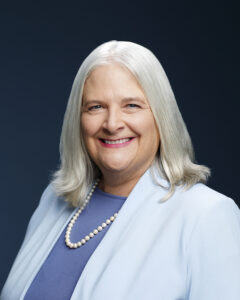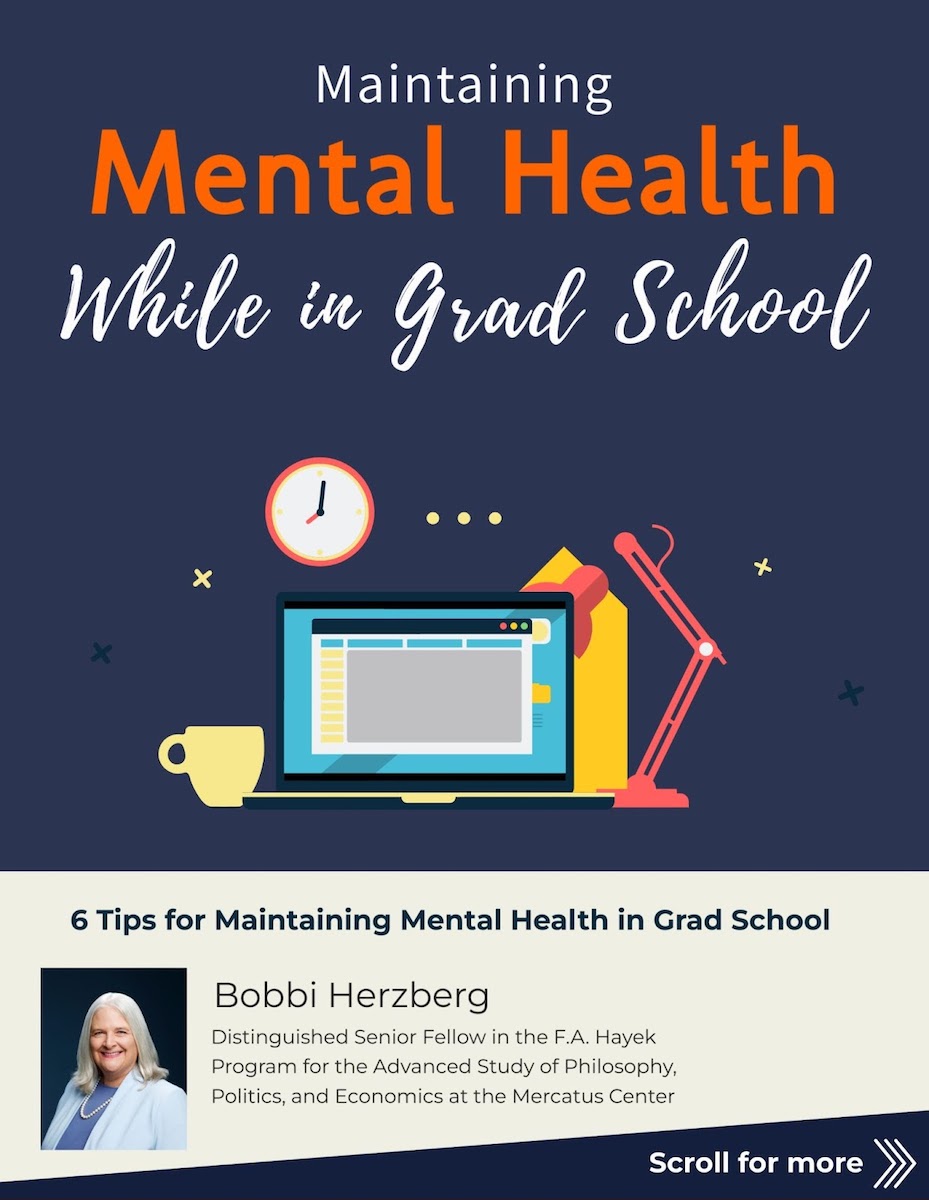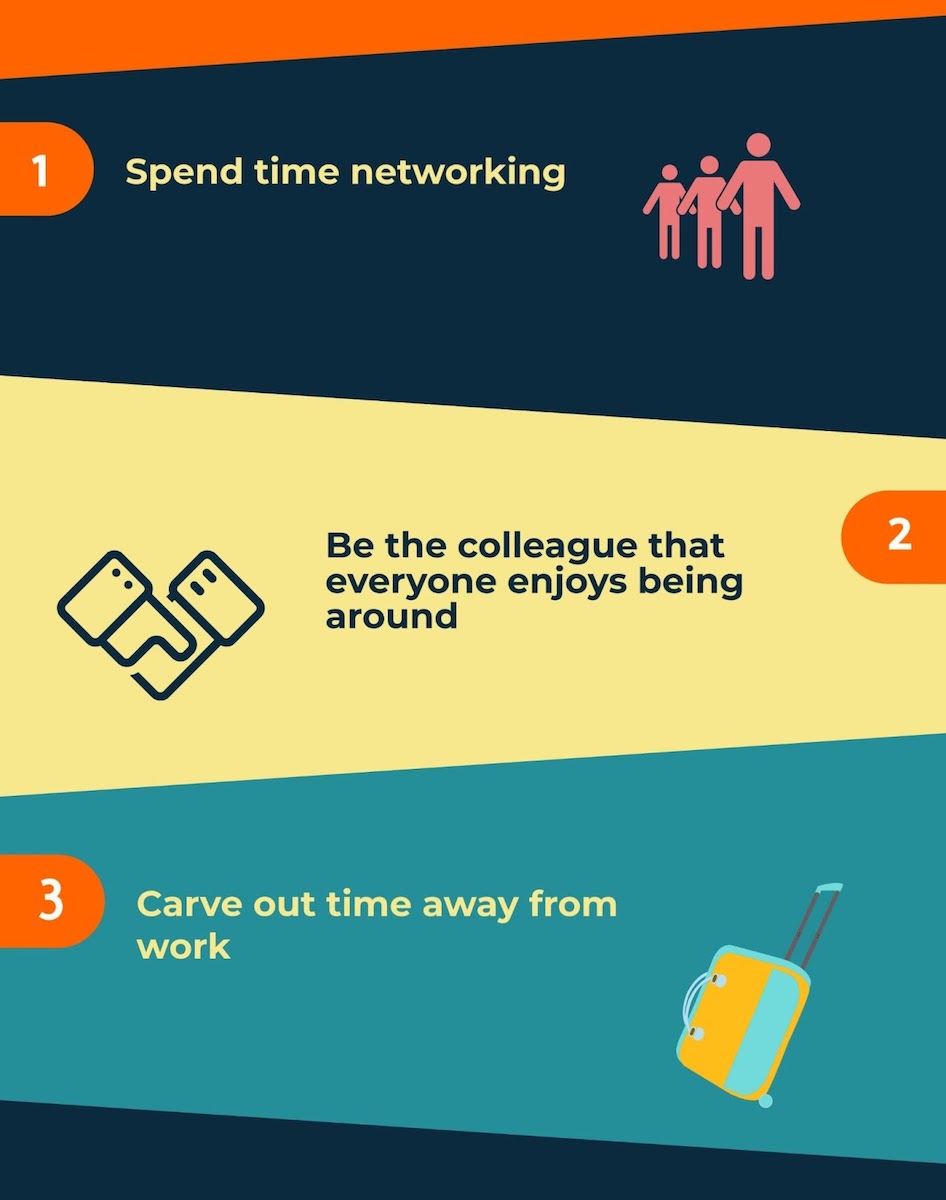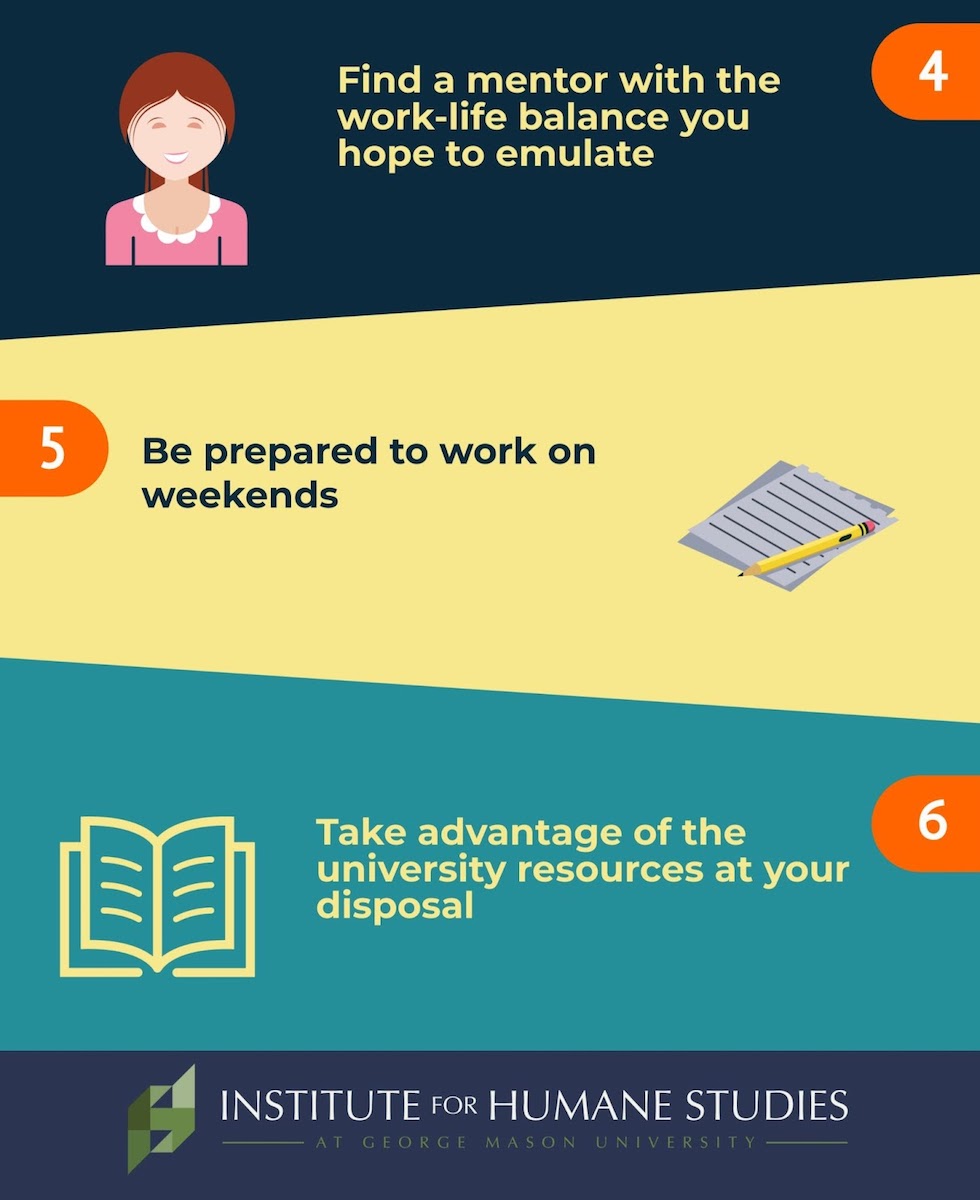Graduate school is a battle of attrition. Within just a few weeks into a graduate program, your work-life balance often takes a tumble as life responsibilities pile on top of schoolwork and teaching obligations. Bobbi Herzberg — distinguished senior fellow in the F.A. Hayek Program for Advanced Study in Philosophy, Politics, and Economics at the Mercatus Center — offers some advice on how to keep afloat during graduate school.
A life in and around academia can be a wonderful thing, but there are important details that one ought to consider before they dive into the world of ideas.
To begin, Herzberg highlights that the state of the academy has evolved considerably from just a few decades ago as universities become more diverse and understanding of the work-life balance. “The fact that there’s so much work now on this [the work-life balance] as there was not when I was entering into the job market is testimony to the fact that this issue has become of increasing concern for younger scholars and for employees more generally,” she says.

She emphasizes that academics don’t need to sacrifice major portions of their personal lives if they want to excel professionally. “If we value other things in our life, and we trade them all for a successful career, we may not be satisfied with the decisions we made at the end of the day,” she observes. The key is balance, and as for most things in life, moderation pays dividends.
Below are some tips that graduate students and recent post-docs can heed if they want to advance professionally without abandoning other things they value:
Graduate students, Herzberg says, can optimize their experience by researching topics they truly love, which dovetails well with the future research they’re likely to conduct. She remarks that “the key is to find projects that interest you. Every time you write a paper, find a way to make it something that you would like to continue to pursue, because these [projects] will become the foundation of your dissertation and shape your early career path.”
Graduate students should also understand the administrative expectations that accompany a life of research and teaching. Don’t be someone who bucks the system, Herzberg notes, since your colleagues will respect you more when you accept the roles outlined in the job description, even if they are undesirable.
Similarly, the number of administrative duties grows as you advance in your academic career. “As you progress into your academic career, you’re going to find your time taken over with a lot more administrative kinds of things, or perhaps greater teaching activities than when you were a graduate student,” she says. Therefore, it’s so important to optimize your research productivity in graduate school since it’s a stage in your career in which you will likely have the most time to work on research.
“Most very successful research scholars are known for only about four pieces at most … If you can work to do the things that are going to be really well done and highly successful, having fewer of them might be okay and saying ‘no’ to some book chapters or contributions may be appropriate … so long as everything you publish is top notch.”
– Bobbi Herzberg
Finally, a successful academic life can take many forms. Herzberg explains that most academics – even the superstars – are known only for a few research projects. Therefore, she says, funnel your energy in those few topics that you are most passionate about, and you want others to remember. Academics flourish when they embrace their comparative advantages. As mentioned, don’t be afraid to specialize in the research areas that you care about because these areas will define your academic career beyond graduate school.
In the grand scheme of things, Herzberg concludes, a successful academic journey is one that welcomes balance and moderation. Bridging the two extremes, whether in the academic setting or beyond, is crucial to how one can be both an impactful academic while enjoying all that life has to offer. She underscores the importance of finding a mentor who exemplifies the work-life balance you hope to emulate. When the pains of moderation become most felt, having that academic mentor or role model can be the difference that makes academia not only productive, but fun.



